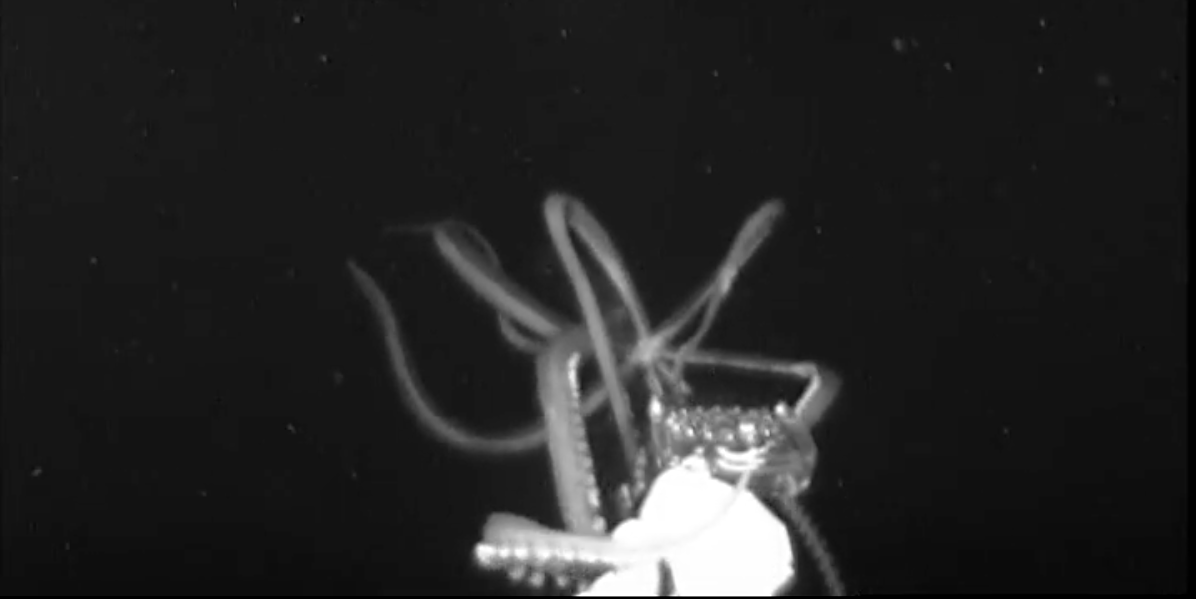Scientists Spot a Giant Squid for the First Time in the U.S.

Footage of a giant squid was captured for the first time in the U.S. near New Orleans.
Researchers were on a 15-day expedition on the Point Sur vessel when the Medusa camera system caught the clear video of the juvenile giant squid.
On June 18, a team aboard the research vessel Point Sur captured footage of a giant squid, Architeuthis dux, in the wild 100 miles from the New Orleans coast. The finding is one of only two expeditions to have captured a giant squid on film in its natural habitat and the only recording of a giant squid in the U.S. to date.
Edie Widder, founder of the Ocean Research and Conservation Association, was one of the first people to see the new footage from earlier this week. She was also a member of the team that caught the world's first video of giant squid back in 2012 off of Japan's Ogasawara archipelago using the Medusa camera system that Widder herself developed.
Medusa was designed to look like bioluminescent prey floating in the deep sea in order to attract predators such as giant squid so that close-up footage could be captured and studied. And the tech did exactly that; Medusa was able to capture stunning footage of the juvenile squid as it approached the camera.
To confirm that the squid was actually Architeuthis dux, the research team called on National Oceanic and Atmospheric Administration (NOAA) cephalopod expert Michael Vecchione to verify that they were looking at a giant squid.
Vecchione studied the footage and whittled the possibilities down to Architeuthis dux or a different type of squid belonging to the Asperoteuthis genus-who tend to have longer, thinner tentacles when compared to Architeuthis-based on the where the camera caught the footage and the size of the creature.
An analysis of the tentacles led Vecchione to conclude that Widder and team had indeed spotted a giant squid.
While getting the squid on film was the highlight of this 15-day mission, Medusa, who was on her fifth deployment, was also able to capture other incredible footage including what is believed to be the first-ever video of a shrimp spewing bioluminescence.
The trick to studying life of deep-sea animals is to observe unobtrusively, which is what @TeamORCA's Medusa deep-sea camera does. During Journey into Midnight expedition, Medusa recorded this first-known in situ video of shrimp spewing bioluminescence: https://t.co/6xsV12bgoW pic.twitter.com/eOOZavtWCG
- NOAA Ocean Explorer (@oceanexplorer) June 17, 2019
Researchers hope that more opportunities arise in the future to study the live giant sea creatures especially because so many of them are dead when they wash ashore. It remains to be seen what kind of footage will be found in the future. In 2015, a diver was able to capture incredible closeup footage of a small-for-its-species giant squid that measured 12 feet long in Toyama Bay, 164 miles northwest of Tokyo.
Source: The New York Times
('You Might Also Like',)

